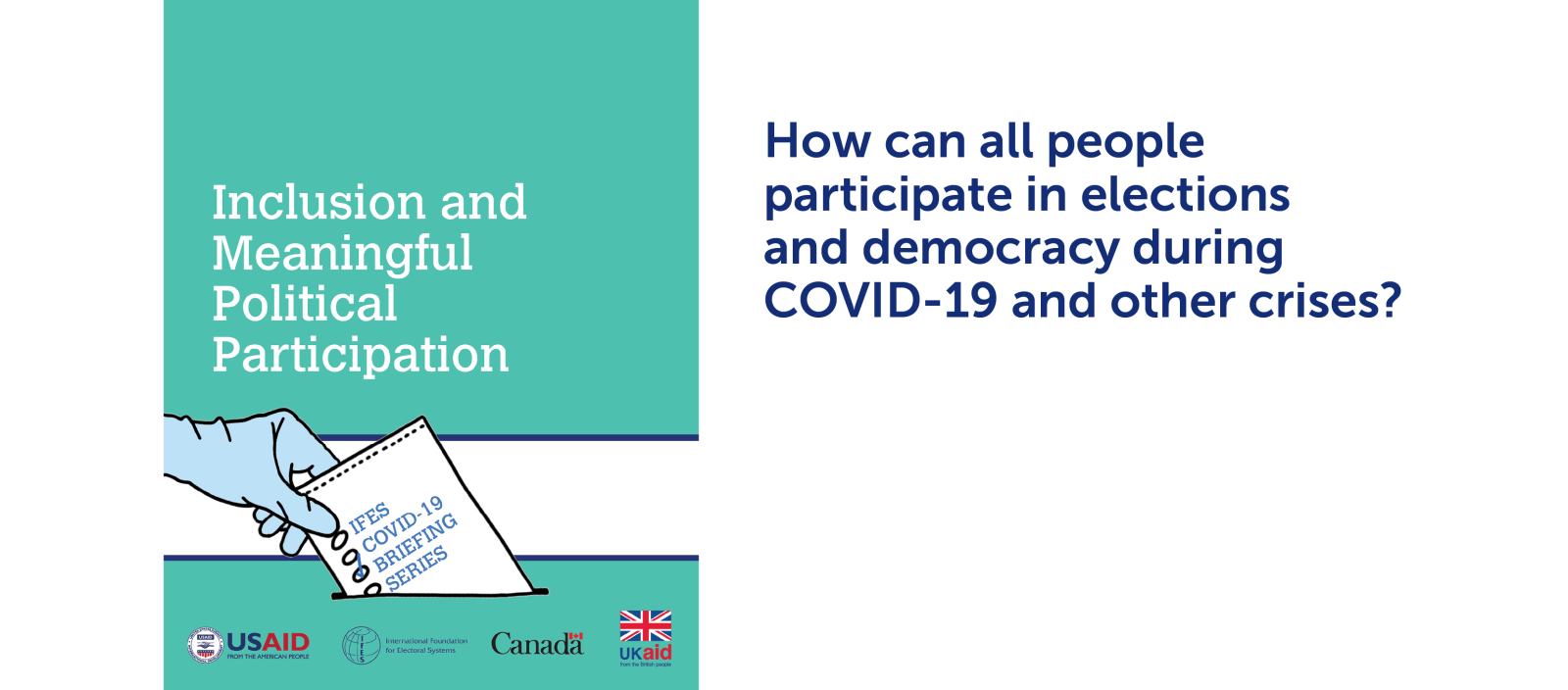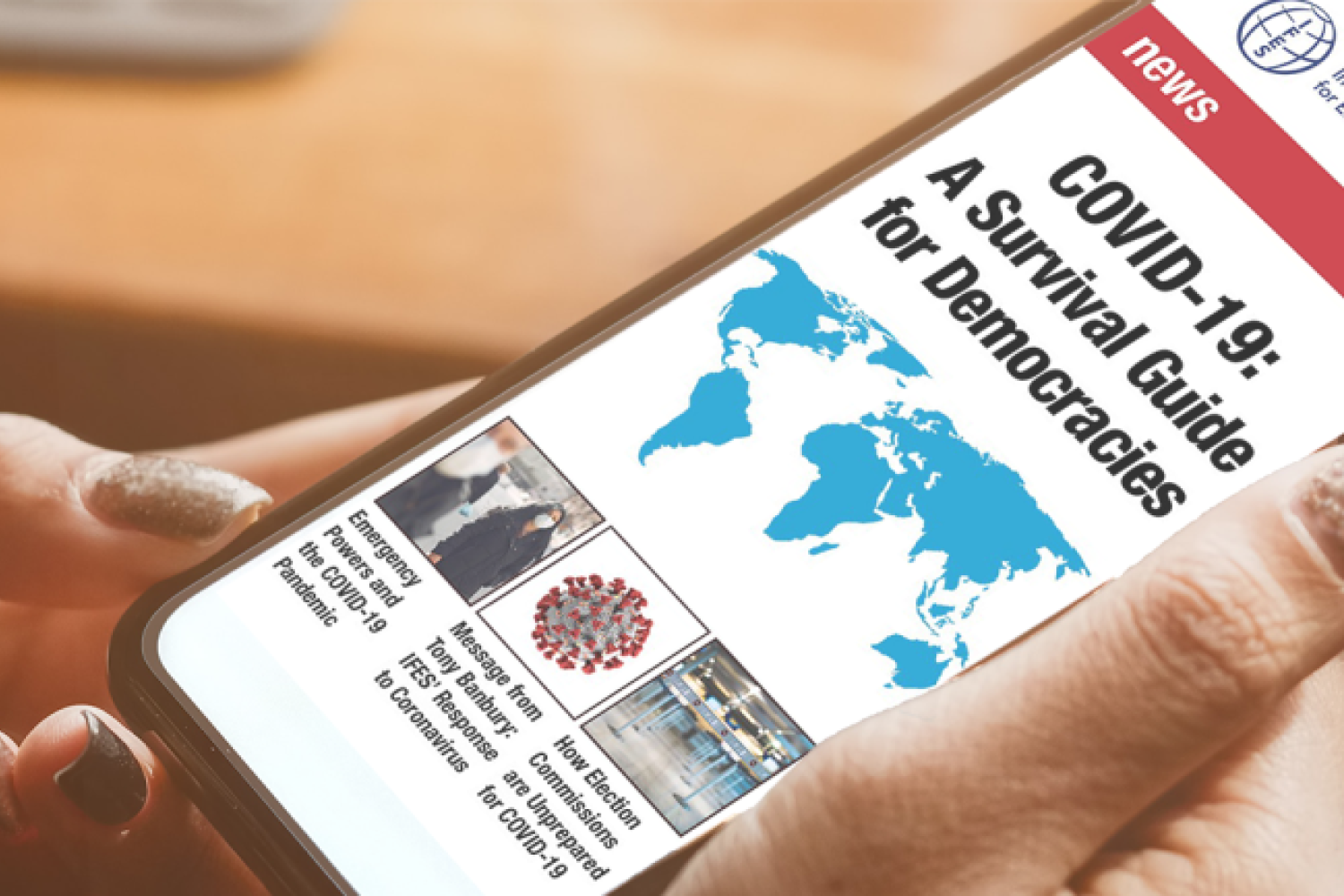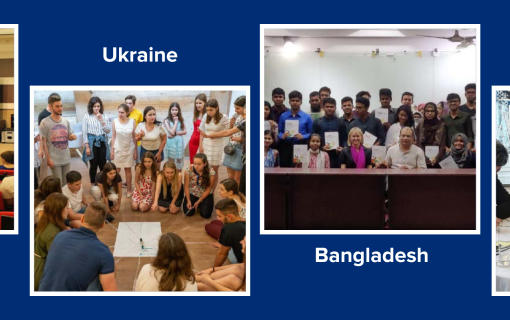
IFES COVID-19 Briefing Series: Inclusion and Meaningful Political Participation
How can all people participate in elections and democracy during COVID-19 and other crises?
Inclusion and Meaningful Political Participation, the fourth paper in the International Foundation for Electoral Systems’ (IFES) COVID-19 Briefing Series, looks closely at this question, examining both obstacles and opportunities, and offers guidance for democracy and governance practitioners, policymakers and supporters.
Discrimination, marginalization and political exclusion threaten individuals, communities and democracies around the world. The effects of the COVID-19 pandemic – both the virus and the responses to it – are heightened for people already facing barriers to rights and resources. Decisions made by governments meant to slow the spread of the virus can create additional obstacles to political participation. A few autocratic political leaders have also used the pandemic as a pretext to further weaken democratic institutions and rights, more deeply harming those already underrepresented, while benefiting those in power.
This paper provides an overview of the potential obstacles that a number of people face while exercising their political rights during a crisis such as COVID-19, as well as recommendations to improve access and inclusion for all.
“It is incumbent upon us all to ensure that we oppose efforts from governments to suppress the right of people to vote or participate in the political process. Together we will be vigilant and outspoken. We must not allow others to use the pandemic as an excuse to take away our rights.”
- Judith Heumann, International Disability Rights Advocate, Senior Fellow Ford Foundation (2017-2019), Special Advisor for International Disability Rights, U.S. Department of State (2010-2017)
Inclusion and Meaningful Political Participation:
- Provides an overview of international frameworks protecting the political rights of women; people with disabilities; young people; older people; displaced people; migrant workers; lesbian, gay, bisexual, transgender and queer people; Indigenous populations; and ethnic, religious and linguistic minorities during the pandemic.
- Describes the main barriers to these groups’ electoral and political engagement during the pandemic.
- Highlights good practices and recommendations for election management bodies, civil society, legislators, electoral justice actors, local authorities, educational institutions, security personnel and the international community on how to mitigate these barriers.
- Identifies opportunities for systemic change toward more inclusive political processes rather than restoring old practices after the COVID-19 pandemic, as well as opportunities to “build back better,” create more resilience and increase trust in democracies.
“Unfortunately, many people still see us as second-class citizens. The COVID-19 pandemic has exacerbated existing barriers. The authors of this paper have provided concrete recommendations for government and civil society to take in order to ensure everyone has access to the political process.”
- Judith Heumann
Read and download Inclusion and Meaningful Political Participation.
Find the other papers in the IFES COVID-19 Briefing Series, which tackles seven fundamental areas of concern for democracy and governance in the wake of the pandemic.
Learn more at IFES’ COVID-19 Survival Guide for Democracies.
Follow #COVIDxDemocracy for new analysis and innovative solutions during the pandemic.
Contact [email protected] for more information.
IFES COVID-19 Briefing Series: Inclusion and Meaningful Political Participation
Authors: Virginia Atkinson, Senior Global Inclusion Advisor; Meredith Applegate, Program Advisor for Ukraine; Rebecca Aaberg, Inclusion Specialist
Lead Editor: Erica Shein, Director, Center for Applied Research and Learning
Editors: Chad Vickery, Vice President, Global Strategy and Technical Leadership; Angela Canterbury, Director, Strategic Communications and Advocacy
















